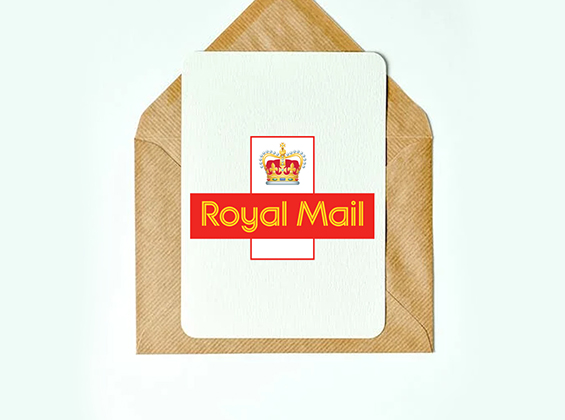
Bauer Media appoints new Head of People – UK Publishing
Bauer Media Group has confirmed that Paul Broughton will join its UK Publishing business as Head of People – UK Publishing.
Industry News, Public Affairs
Industry News, Public Affairs
The Chancellor of the Exchequer, Jeremy Hunt MP, opened proceedings by laying out the unprecedented economic headwinds, referencing the ongoing energy crisis, cost of living, and supply chain pressures caused by the war in Ukraine. He did note that he wanted to protect the vulnerable within his statement as “to be British is to be compassionate and this is a compassionate government”.
Of particular note to publishers, it has been announced that the government will bring forward the Digital Markets, Competition and Consumer Bill – the legislation that will empower the Digital Markets Unit (DMU) – to parliament in the current parliamentary session. Meanwhile, the proposed Online Sales Tax has been abandoned.
The Chancellor acknowledged that the UK is now in a recession and that the economic climate would worsen in the short term. However, the blame for this was placed on international factors and comparisons were given on the economic situation other comparable countries were also facing.
On inflation, Hunt says that this was his “enemy” and would be a focus of his to tackle. Again, comparisons to the inflationary environment of countries were given by Hunt to provide context and demonstrate the UK was not an outlier in the situation it faced.
According to the Treasury, a fiscal “black hole” of around £54 billion exists in the public finances, with the Chancellor confirming wide-ranging spending cuts coupled with tax rises in response. In total, £55 billion of tax increases and spending cuts have been announced today.
In attempting to restore the public finances, the Chancellor said that the Autumn Statement will also seek to restore the UK’s economic stability and reassure markets following September’s “mini” budget which was correct to identify growth as a priority. Hunt affirmed that in taking these decisions, the most vulnerable will be protected and future economic growth should not be sacrificed.
Three priorities guide the Chancellor’s Autumn Statement: stability, growth, and public services. He stated that “the UK, like other countries, is now in recession”, however “but because of our plans the recession is shallower, and inflation is reduced.”
Shadow Chancellor Rachel Reeves MP (Lab) began by stating that the country found itself in a “worse place than we started the year” given the changes in Prime Ministers and other positions. She attributed the economic outlook not only to “12 weeks of Conservative chaos but also 12 years of economic failure”. She accused the Chancellor of offering the same old failed policies despite dismal economic growth, investment going down, wages being squeezed, and public spending crumbling, saying working people were paying for his failure.
She urged the need to break free from the cycle of stagnation, advocating for fairer choices and a proper plan for economic growth. Ms Reeves stated the Government has no coherent plan for growth, reflected by the Office for Budget and Responsibility’s decision to downgrade growth in the months and year ahead. She asserted the need for a long-term plan that would produce “a fairer, greener, more dynamic economy”, putting working people at the forefront and an industrial strategy “which gives business certainty, unlocks investment, and means that Britain can once again lead the world in the industries of the future”.
Personal:
• There will be a freeze on both the basic and higher rates of income tax threshold until 2028.
• The highest rate of tax (45p) will also see its threshold lowered from £150,00 to £125,140. This measure is expected to immediately move 250,000 people into the highest bracket. This constitutes a raise of £1200 for these individuals
• Income tax personal allowances and the higher rate thresholds will be frozen until April 2028, as opposed to rising with inflation
• National Insurance and inheritance tax thresholds will also be frozen for a further two years (until April 2028)
• The allowance for capital gains tax will be lowered significantly, from £12,300 to £6,000 and then down to £3,000 in 2024
• All three rates of dividends tax (basic, higher and additional) will rise, and the tax-free allowance will be cut in half, down to £1,000 and then further to £500 in April 2023
• The energy bill cap will rise by £500 in April 2023, setting the new ceiling at £3,000
• Kwasi Kwarteng’s stamp duty cut will remain in place, but only until 2025, when a rise is expected
Business
• The energy company windfall tax (Energy Profits Levy) has been extended until 2028, with a 10% rise (from 25% to 35%)
• A temporary 45% tax will be levied on all companies that generate electricity. This will come into effect January 2023
• Councils will be permitted to raise taxes by up to 5% without the need for a local referendum
• The main rate of Corporation Tax will increase to 25% from April 2023
• Implementation of the OECD Pillar 2 rules, to deliver a global minimum corporate tax rate of 15%.
International
• Whilst defence spending will be reviewed, there was no announced rise in defence spending. It will stay at 2% of this statement period.
• Aid spending will also not return to the previous 0.7% levels, remaining at 0.5% for the next 5 years
Public Sector and Infrastructure
• £8bn will be given to the NHS and social care sectors. The NHS will receive at least £3.3bn this year and the next as part of this, whilst social care will receive £1bn this year and £1.7bn the following
• The education sector will be allocated £2.3bn per year for the next two years
• Projects such as the Sizewell C nuclear power plant, HS2, Northern Powerhouse Rail, East West Rail, and gigabit broadband will also be funded
Regional and Devolved Funding
• Additional Levelling Up funding was confirmed, with at least £1.7bn to be allocated by the end of this year
• The devolved administrations will receive additional funding, with £1.5bn allocated to Scotland, £1.2bn to Wales and £650mn to Northern Ireland over 2023-2024 and 2024-2025
Compassion
• The pension ‘triple lock’ will be protected
• Working age benefits will increase by 10.1%
• The national living wage will rise to £10.42 an hour
• The government will issue further cost-of-living support payments, including a means-tested £900, £300 for pensioners and a £150 disability cost of living payment in April 2023

Bauer Media Group has confirmed that Paul Broughton will join its UK Publishing business as Head of People – UK Publishing.

On 10 July, Ofcom published its final decision on reforms to the Universal Service Obligation (USO), confirming a number of changes that will significantly affect how subscription magazines are delivered.
Chancery House, 53-64 Chancery Lane, London WC2A 1QS




If you have a member login, enter your details below. Please note, that your login is for PPA.co.uk only and not for our event sites.
If you are a member but don’t have an account yet, you can setup your account here.
Any problems, please contact membership@ppa.co.uk.